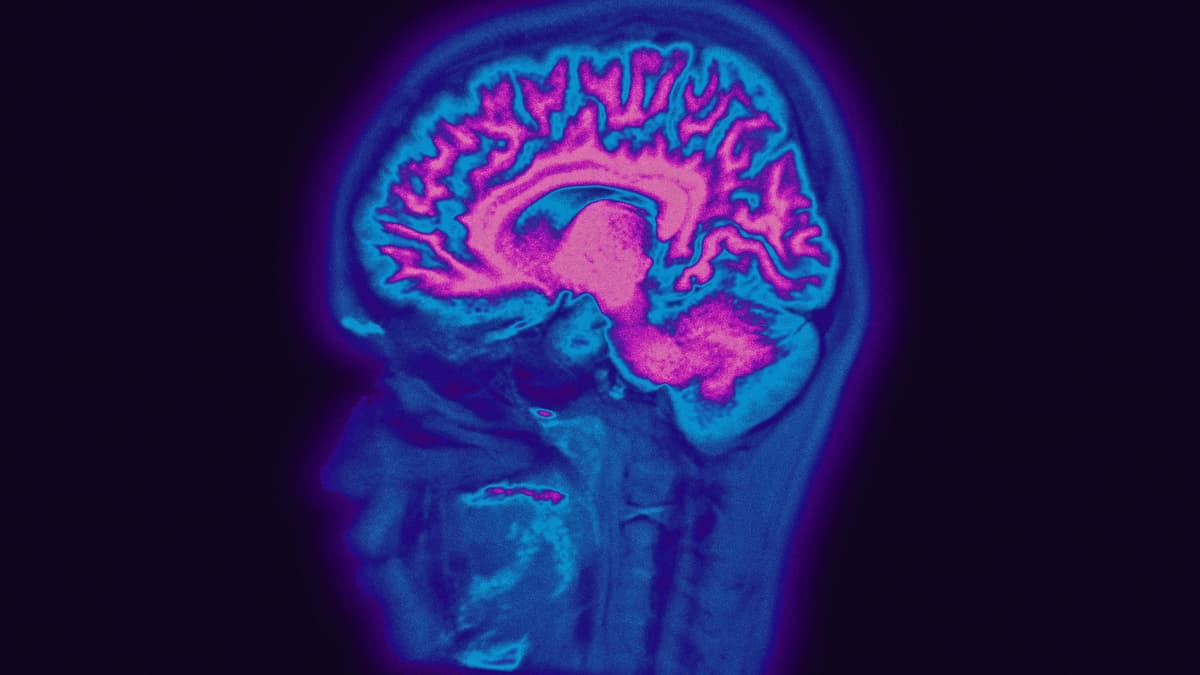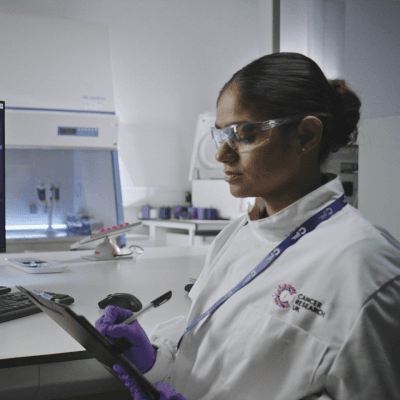
We’re identifying the earliest signs of cancer and developing better tests to spot them. We want to detect more cancers early when treatment is more likely to work.

There’s a treasure trove of information in our blood, urine and saliva. We're using it to find and understand cancer.

Our researchers are developing a breath test that could detect stomach cancer earlier and help people get treatment faster.

Sometimes, the simplest things make the biggest difference. This sponge on a string could help stop oesophageal cancer – one of the hardest to treat cancers - in its tracks

Our researchers have found a way to fully diagnose a type of childhood brain tumour much faster, so doctors can make the best treatment decisions from the start.

When you're trying to stop a cancer, it can help to know where it started. Professor Caroline Dive's CUPiD trial is tracking cancers down using the clues they spill into the blood.

Today, diagnosing mouth cancer usually involves scalpels, stitches and anaesthetic. Our researchers have a plan to replace it with lollipops.
Our work helped roll out cancer screening in the UK, spotting the disease before symptoms start so we can treat people earlier.
Three
We helped to implement and shape the UK’s three national screening programmes for breast, cervical and bowel cancer.
90,000
Almost 90,000 cancer cases were detected through screening between 2019-2023.
Thousands
Between them, these three programmes help save thousands of lives each year.
Find out how you can support our life-saving work.

Every day, breakthroughs are saving lives. That’s the power of our science.